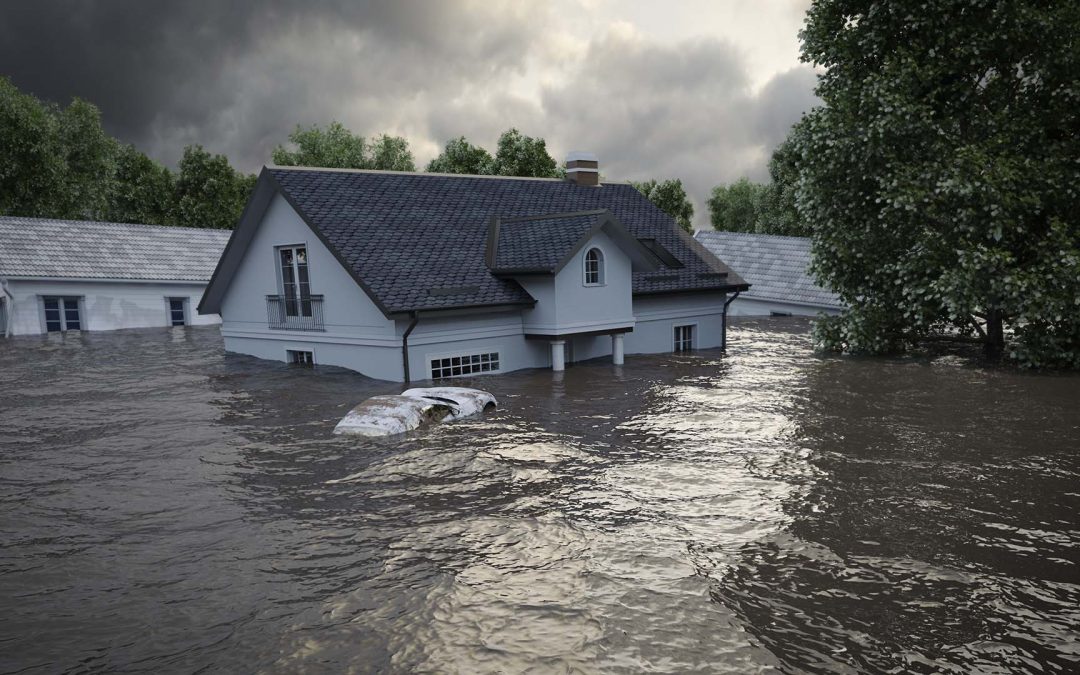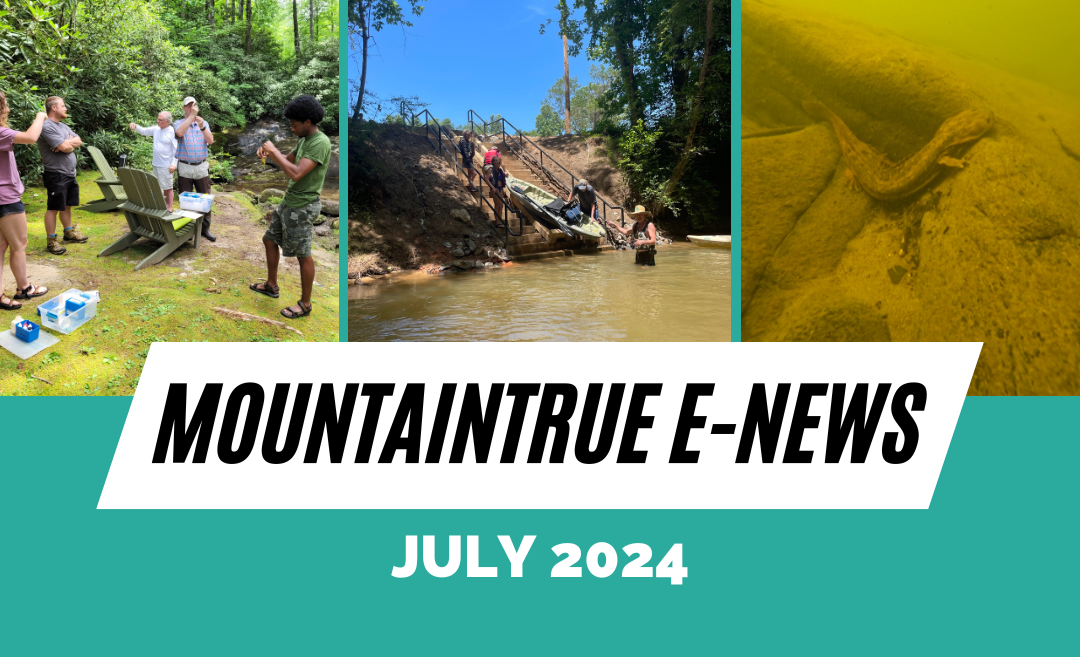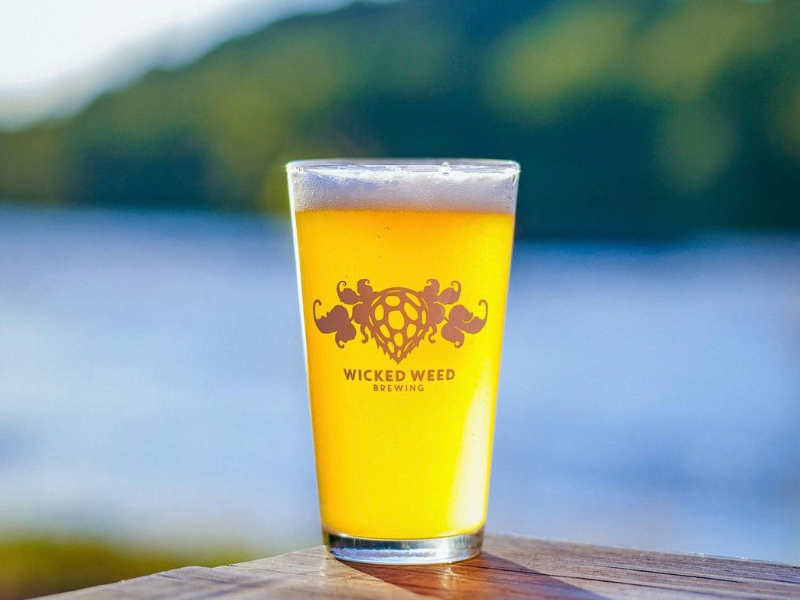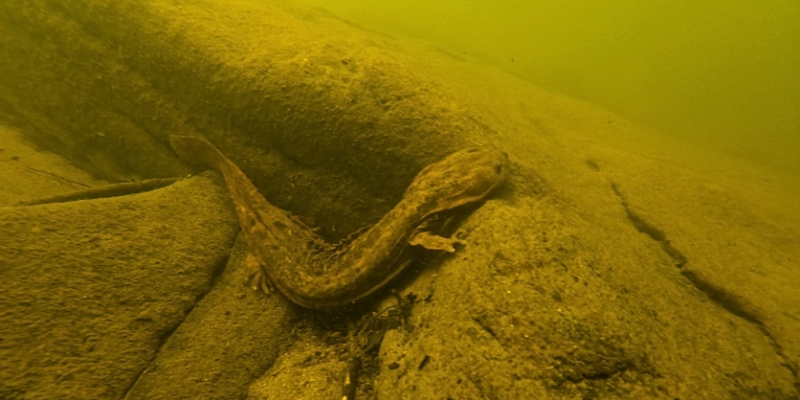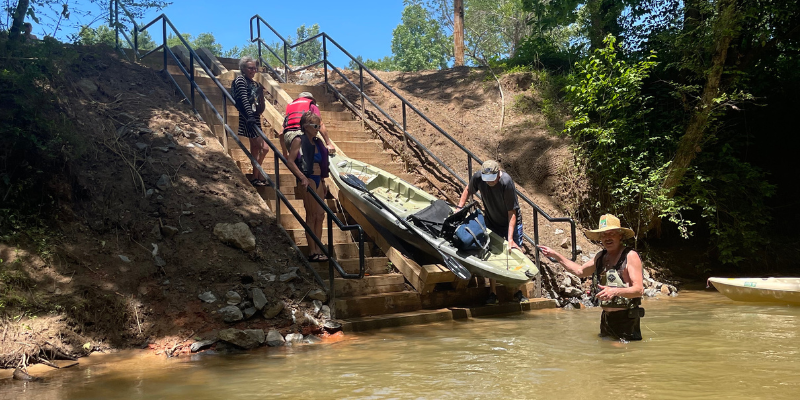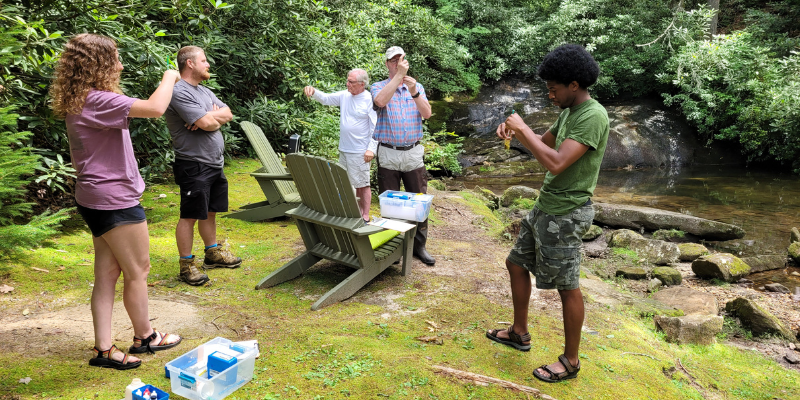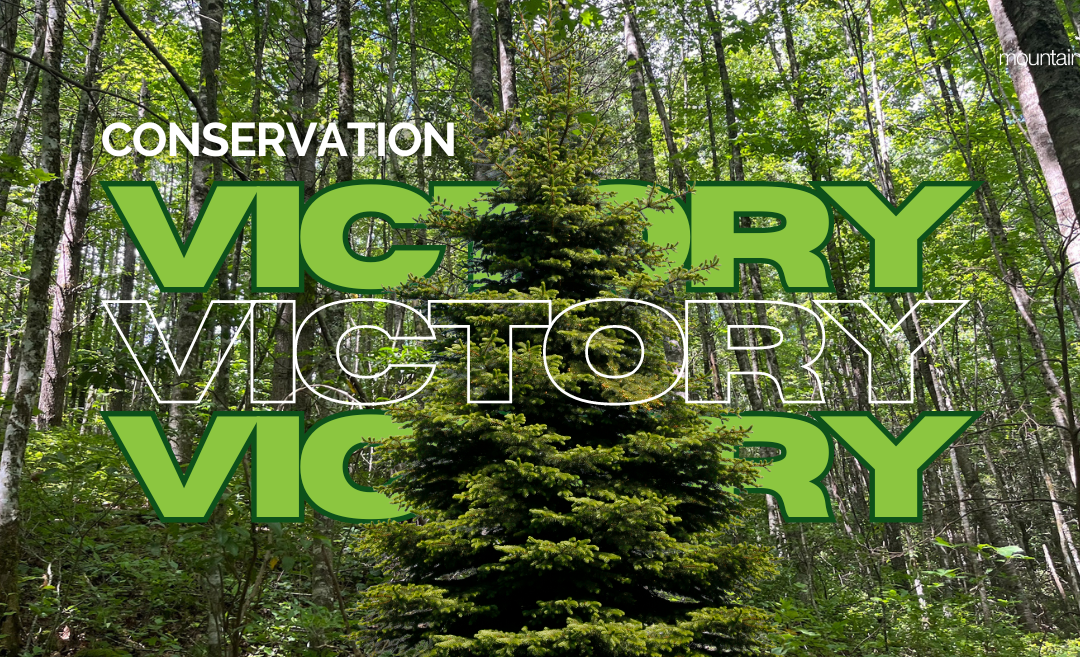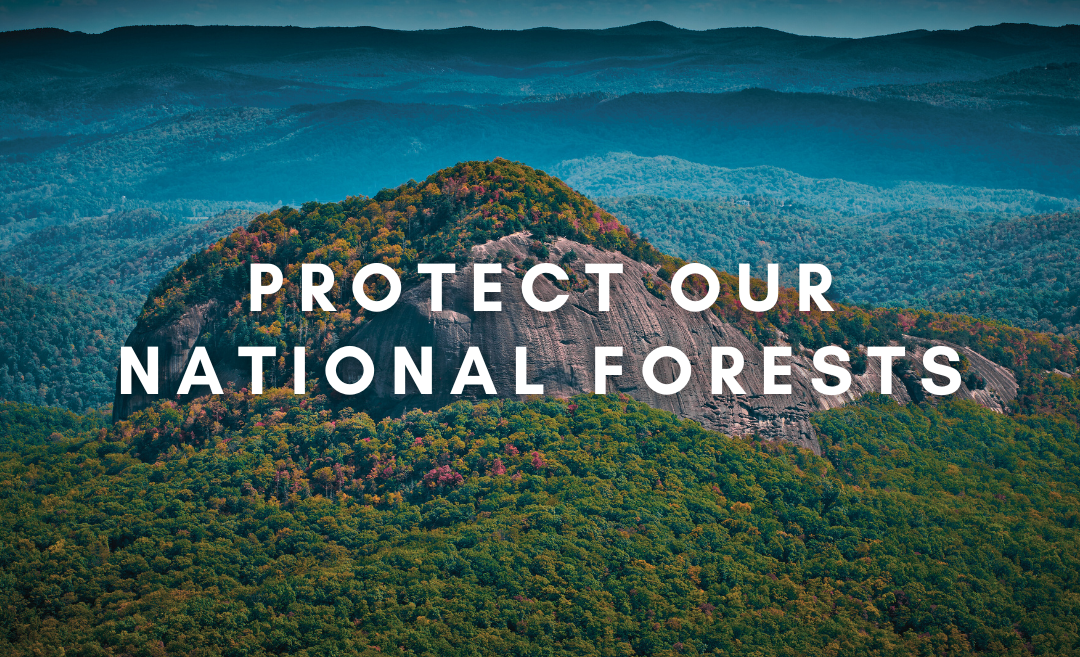
NCDOT Feedback on STIP
NCDOT Feedback on STIP
The North Carolina Department of Transportation is seeking input as they prioritize road projects for the next ten years. This is our best opportunity to influence the process and call for needed improvements like sidewalks, greenways, and bike lanes, while also speaking out against further highway expansions that are bad for our environment. See MountainTrue’s project priorities below and then use this interactive project map to tell DOT which projects you think they should prioritize and which ones you think they should not pursue.
MountainTrue Priorities for our Central Region:
Vote Yes!
Blue Projects:
- US 70 (Tunnel Road) – 24 – Implement Road Diet to Improve Safety – Implement a road diet with intersection improvements on US 70 (Tunnel Road) from Beaucatcher Tunnel to US 74A (South Tunnel Road)
- US 70 (Tunnel Road) – 11 – Access Management – Roadway improvements and access management to include complete streets elements.
- US 25 (McDowell Street) – 26 – Upgrade Roadway – Upgrade roadway to improve safety, address congestion bottlenecks, and accommodate pedestrian and bicycle facilities.
- Tunnel Road Sidewalks – 7 – Protected Linear Pedestrian Facility (Pedestrian) – Construct new sidewalks and fill-in sidewalk gaps from New Haw Creek Road to the Blue Ridge Parkway.
- NC 63 (New Leicester Highway) – 11 – Access Management – Construct access management improvements.
Pink Projects:
- Tunnel Road Sidewalks – 7 – Protected Linear Pedestrian Facility (Pedestrian) – Construct new sidewalks and fill-in sidewalk gaps from New Haw Creek Road to the Blue Ridge Parkway.
- Reed Creek Greenway Extension – 2 – Off-Road/Separated Linear Bicycle Facility (Bicycle) – Extend the Reed Creek Greenway from the existing Reed Creek Greenway termini near WT Weaver Boulevard to the planned Riverside Drive Sidepath on NC 251.
- NC 251 (Riverside Drive) – 7 – Protected Linear Pedestrian Facility (Pedestrian) – Construct sidewalks along NC 251 (Riverside Drive) from future I-26 to Woodfin Ave.
- Patton Avenue – 7 – Protected Linear Pedestrian Facility (Pedestrian) – Construct sidewalks from Old Haywood Road to Johnston Blvd along Patton Avenue.
- Bent Creek Greenway (WNC Farmers Market to Asheville Outlets) – 2 – Off-Road/Separated Linear Bicycle Facility (Bicycle) – Construct a new multi-use path from the WNC Farmer’s Market to Asheville Outlets along NC 191
- Bent Creek Greenway (Hominy Creek/WNC Farmer’s Market Segment) – 2 – Off-Road/Separated Linear Bicycle Facility (Bicycle) – Construct a new multi-use path from Hominy Creek Greenway to Hominy Creek River Park.
Green Projects:
- NS AS Line (WNC Passenger Service) – 5 – Passenger rail service (line) – Upgrade rail infrastructure to support new intercity passenger service from Salisbury to Asheville on the AS Line. Project includes necessary infrastructure, stations, and passenger equipment to begin service with three roundtrips per day.
Hard No!
- I-40 – 1 – Widen Existing Roadway – SR 1200 (Wiggins Road), Exit 37 to SR 1224 (Monte Vista Road). Add additional lanes.
- I-40 – 1 – Widen Existing Roadway – Widen Roadway. (2 separate sections to vote on here between Candler and Clyde)
MountainTrue Priorities for our Western Region:
Vote Yes!
- SR 1307 (Tusquittee Rd) – 16 – Modernize Roadway – Modernize roadway to standard lane and shoulder widths with sidewalk to Ritter Road and Greenway to the Hiwassee River. (Clay Co.) [This one is straight out of the Hayesville Moves Pedestrian & Bicycle Plan!]
- SR 1363 Texana Rd – Linear Pedestrian Facility (Cherokee Co)
- SR 1127 (Snowbird Road) – 16 – Modernize Roadway – Modernize roadway to standard lane and shoulder widths with pedestrian and bicycle facilities. (Graham Co)
- Hwy 441 Between Whittier & Cherokee – Provide access management by upgrading the roadway from 5-lane to a 4-lane divided facility. Include bicycle and pedestrian accommodations. (Jackson Co)
- SR 1364 (Fontana Drive) – 7 – Protected Linear Pedestrian Facility (Pedestrian) – Construct a sidepath connecting the high school to downtown. (Swain Co)
- Richland Creek Greenway– North – 2 – Off-Road/Separated Linear Bicycle Facility (Bicycle) (Haywood Co)
- Raccoon Creek Greenway – 2 – Off-Road/Separated Linear Bicycle Facility (Bicycle) (Haywood Co)
- US 64 Multi-Use Path – 2 – Off-Road/Separated Linear Bicycle Facility (Bicycle) in Cashiers (Jackson Co)
- US 64 (Franklin Rd) -7 – Protected Linear Pedestrian Facility in Highlands (Pedestrian). Construct sidewalk. (Macon Co)
Hard No!
- US-64 between Peachtree and Hayesville: creating a 4-lane divided highway. This will destroy our rural character and is completely unnecessary. Making it 3-lane in places to allow for passing, maybe, but not 4-lane divided.
MountainTrue Priorities for the High Country:
Vote Yes!
- US 221 Truck, US 321 Truck, NC 105 – 4 – Upgrade Arterial to Signalized RCI Corridor – Improve corridor by constructing median and RCI intersections. Also construct bicycle and pedestrian improvements
- NC 163 – 16 – Modernize Roadway – Modernize roadway and construct multiuse path
- New River Hills Road Multi-Use Path – 2 – Off-Road/Separated Linear Bicycle Facility (Bicycle) – Construct a multi-use sidepath along New River Hills Road from US 421 multi-use path termini and future committed project (EB-5983) termini to connect to the existing Boone Greenway termini at Casey Lane.
- Middle Fork Greenway Sections 5B, 5C, 3A, and 1B – Off-Road/Separated Linear Bicycle Facility (Bicycle) – Construct greenway along US 321 to Watauga Medical Center
Hard No!
- US 421 (Daniel Boone Parkway) – 5 – Construct Roadway on New Location – Construct freeway on new location south of the City of Boone (there are 2 sections to vote on here, one west of Boone and the other southeast of Boone)
MountainTrue Priorities for our Southern Region:
Vote Yes!
- Greenway-Jackson Park to Blue Ridge CC 2 – Off-Road/Separated Linear Bicycle Facility (Bicycle)
- Church Street and King Street 7 – Protected Linear Pedestrian Facility (Pedestrian)
- Saluda Grade Rail Trail 2 – Off-Road/Separated Linear Bicycle Facility (Bicycle)
- Above The Mud Greenway Connector 2 – Off-Road/Separated Linear Bicycle Facility (Bicycle)
Thank you for helping make our roadways safer for all users by supporting multi-modal transportation projects and opposing unnecessary highway expansion!


